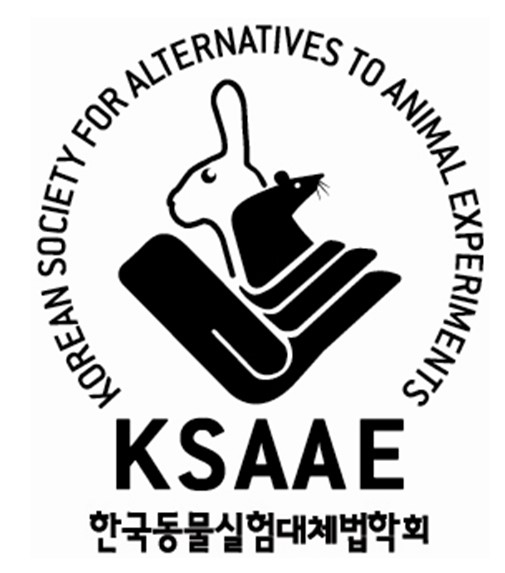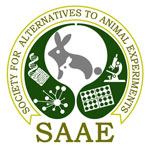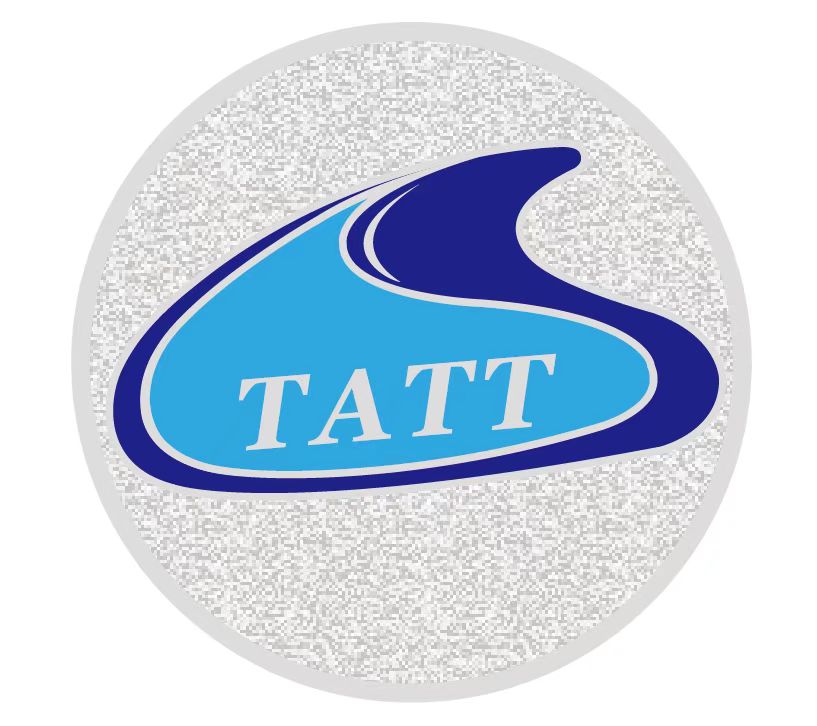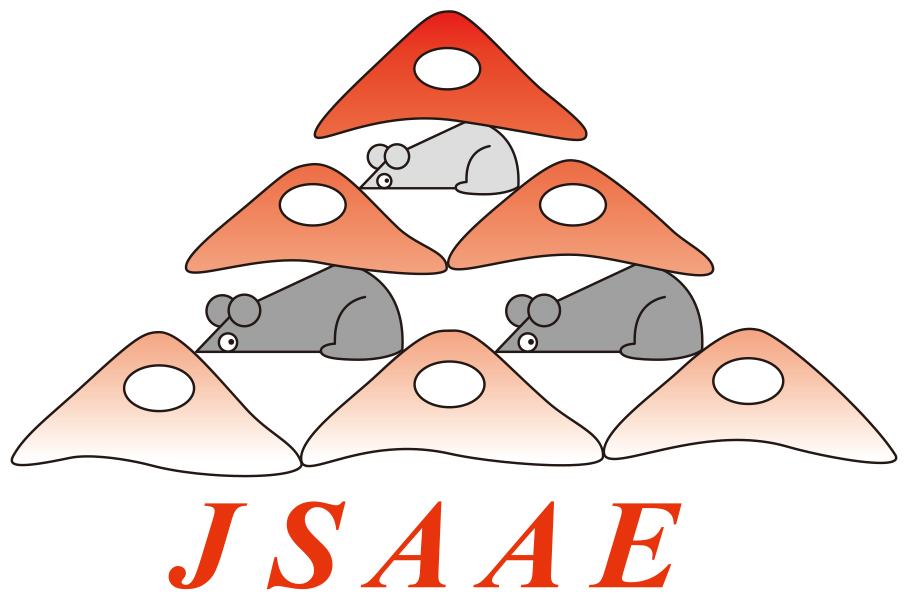JSAAE, KSAAE, SAAE-I, TATT
JSAAE
The
Japanese Society for Alternatives to Animal Experiments
The Japanese Society for Alternatives to Animal
Experiments was established in 1989 as the “Japanese Society for
Alternatives to Animal Experiments”, which had its origins in
the “Japanese Research Group for Alternatives to Animal
Experiments” founded by the late Tsutomu Sugahara (Professor
Emeritus, Kyoto University) in 1987. Since then, with the rise
in interest in animal welfare in Japan, the society has played a
central role in academic research and social recognition of the
3Rs (reduction of the number of animals used, refinement of the
pain and suffering of animals, and replacement of animal
experiments with non-animal methods), and is now also a
registered organization of the Science Council of Japan. In
order to increase its social credibility, in January 2022, the
society became General Incorporated Association Japanese Society
for Alternatives to Animal Experiments.
The Society believes that the 3Rs principle should be applied to all areas of society starting with the field of safety testing using laboratory animals, including education, and that the implementation of animal testing and the introduction of alternative methods should be carried out in accordance with the 3Rs principle. In terms of the 3Rs principle, the reduction of the number of animals used (reduction) and the alleviation of pain (refinement) are areas where collaboration with veterinarians and other experts in the field of animal welfare is extremely important.
On the other hand, to achieve Replacement of animal testing with non-animal testing, it is necessary to carefully verify the scientific validity of the development by integrating the expertise of various fields, from basic research on the biological reactions to be replaced to the evaluation of their scientific validity. In order to achieve Replacement, it is absolutely necessary to collaborate with researchers from industry, government, and academia who are active in various research fields. As mentioned above, our society covers a wide range of research fields, and at our academic conferences we have planned a wide range of symposia, including collaborative projects with other societies, covering everything from the application of the latest basic science to responses to social issues.
In addition, we hold lectures and technical training sessions on the latest international trends and alternative methods technology. In addition, we have disseminated the achievements of Japanese researchers to the world through the publication of the English-language academic journal AATEX (Alternatives to Animal Testing and Experimentation), newsletters, email newsletters, etc., and have also provided our members with the latest information. Furthermore, we have provided academic research grants to our members with the support of companies and industry groups.
In recent years, international cooperation has been emphasized in the development and implementation of alternative methods, and our society has established close relationships with alternative method research organizations in Asia, Europe, and the United States, and in 2007, we held the 6th World Congress on Alternatives and Animal Use in the Life Sciences (WC6) in Tokyo for the first time in Asia. After that, the 1st Asian Congress started in Karatsu in 2016 with the aim of promoting collaboration among alternative method researchers in Asia. The 2nd Congress was held in Guangzhou (China) in 2018, and the 3rd Congress was held in Jeju Island (South Korea) in December 2022, and collaboration among alternative method researchers in Asia is steadily progressing. The Japanese Society for Alternatives to Animal Experiments hopes to contribute to the further development of alternative methods research and the spread of the 3Rs principle, not only in Japan but also overseas.
For the latest information on the Society, please check the following URL. https://jsaae.net/
KSAAE
The Society believes that the 3Rs principle should be applied to all areas of society starting with the field of safety testing using laboratory animals, including education, and that the implementation of animal testing and the introduction of alternative methods should be carried out in accordance with the 3Rs principle. In terms of the 3Rs principle, the reduction of the number of animals used (reduction) and the alleviation of pain (refinement) are areas where collaboration with veterinarians and other experts in the field of animal welfare is extremely important.
On the other hand, to achieve Replacement of animal testing with non-animal testing, it is necessary to carefully verify the scientific validity of the development by integrating the expertise of various fields, from basic research on the biological reactions to be replaced to the evaluation of their scientific validity. In order to achieve Replacement, it is absolutely necessary to collaborate with researchers from industry, government, and academia who are active in various research fields. As mentioned above, our society covers a wide range of research fields, and at our academic conferences we have planned a wide range of symposia, including collaborative projects with other societies, covering everything from the application of the latest basic science to responses to social issues.
In addition, we hold lectures and technical training sessions on the latest international trends and alternative methods technology. In addition, we have disseminated the achievements of Japanese researchers to the world through the publication of the English-language academic journal AATEX (Alternatives to Animal Testing and Experimentation), newsletters, email newsletters, etc., and have also provided our members with the latest information. Furthermore, we have provided academic research grants to our members with the support of companies and industry groups.
In recent years, international cooperation has been emphasized in the development and implementation of alternative methods, and our society has established close relationships with alternative method research organizations in Asia, Europe, and the United States, and in 2007, we held the 6th World Congress on Alternatives and Animal Use in the Life Sciences (WC6) in Tokyo for the first time in Asia. After that, the 1st Asian Congress started in Karatsu in 2016 with the aim of promoting collaboration among alternative method researchers in Asia. The 2nd Congress was held in Guangzhou (China) in 2018, and the 3rd Congress was held in Jeju Island (South Korea) in December 2022, and collaboration among alternative method researchers in Asia is steadily progressing. The Japanese Society for Alternatives to Animal Experiments hopes to contribute to the further development of alternative methods research and the spread of the 3Rs principle, not only in Japan but also overseas.
For the latest information on the Society, please check the following URL. https://jsaae.net/
KSAAE
The
Korean Society for Alternatives to Animal Experiments

The Korean Society for Alternatives to Animal
Experiments (KSAAE) traces its origins to July 2006, when a
study group gathered for an Alternative seminar and
conference at the National Institute of Toxicological
Research (NITR). The society was officially founded in
February 2007, marking its establishment with its first
conference at NITR.
A significant development occurred in November 2009 when KoCVAM was established within KFDA, leading to the beginning of collaborative work between KSAAE and KoCVAM. The society made substantial progress in policy development, with November 2013 marking the establishment of policies for alternative method development in law. This was followed by a crucial legislative milestone in February 2017 with the implementation of legislation prohibiting animal experiments for cosmetics. More recently, the society hosted the 3rd Asia Congress Alternatives to Animal Experiments in Jeju in December 2022, demonstrating its continued leadership in the field across Asia. The Korean Society for Alternatives to Animal Experiments publishes its society journal twice a year since 2007. The journal, titled "Journal of Alternatives to Animal Experiments" (ISSN 1975-9657), serves as a platform for sharing research and developments in the field of alternative testing methods. The society has maintained an active academic calendar by hosting workshops and conferences 1-2 times annually since 2007. These events provide opportunities for researchers and professionals to share knowledge and discuss advancements in alternative testing methods.
Additionally, the society plays a crucial role in policy development by providing consultation for legislation regarding the 3R principle (Replacement, Reduction, Refinement) and alternative methods to animal experimentation in Korea. The Role of KSAAE can be described through its four main functions and international network: KSAAE serves as a key policy consultant in Korea, focusing on the development and application of alternative methods to animal testing. They provide expert guidance and recommendations for implementing these alternative approaches in research and industry. KSAAE actively participates in international cooperation, maintaining strong relationships with related societies across Europe, Japan, and America. They are connected with various international organizations including ASCCT (USA), JSAAE (Japan), EUSAAT (EU), and TATT (China) etc. This international network enables them to share information and best practices globally.
This comprehensive approach allows KSAAE to effectively promote and advance the field of alternative testing methods both domestically and internationally.
For the latest information on the Society, please check the following URL https://www.ksaae.org/
A significant development occurred in November 2009 when KoCVAM was established within KFDA, leading to the beginning of collaborative work between KSAAE and KoCVAM. The society made substantial progress in policy development, with November 2013 marking the establishment of policies for alternative method development in law. This was followed by a crucial legislative milestone in February 2017 with the implementation of legislation prohibiting animal experiments for cosmetics. More recently, the society hosted the 3rd Asia Congress Alternatives to Animal Experiments in Jeju in December 2022, demonstrating its continued leadership in the field across Asia. The Korean Society for Alternatives to Animal Experiments publishes its society journal twice a year since 2007. The journal, titled "Journal of Alternatives to Animal Experiments" (ISSN 1975-9657), serves as a platform for sharing research and developments in the field of alternative testing methods. The society has maintained an active academic calendar by hosting workshops and conferences 1-2 times annually since 2007. These events provide opportunities for researchers and professionals to share knowledge and discuss advancements in alternative testing methods.
Additionally, the society plays a crucial role in policy development by providing consultation for legislation regarding the 3R principle (Replacement, Reduction, Refinement) and alternative methods to animal experimentation in Korea. The Role of KSAAE can be described through its four main functions and international network: KSAAE serves as a key policy consultant in Korea, focusing on the development and application of alternative methods to animal testing. They provide expert guidance and recommendations for implementing these alternative approaches in research and industry. KSAAE actively participates in international cooperation, maintaining strong relationships with related societies across Europe, Japan, and America. They are connected with various international organizations including ASCCT (USA), JSAAE (Japan), EUSAAT (EU), and TATT (China) etc. This international network enables them to share information and best practices globally.
This comprehensive approach allows KSAAE to effectively promote and advance the field of alternative testing methods both domestically and internationally.
For the latest information on the Society, please check the following URL https://www.ksaae.org/
SAAE-I
The
Society for Alternatives to Animal Experiments (SAAE India)

The genesis of the Society for Alternatives to Animal
Experiments-India (SAAE-I) could be traced back to the
establishment of Mahatma Gandhi-Doerenkamp Centre (MGDC) with
funding from Doerenkamp-Zbinden Foundation, Switzerland, in
2009, at Bharathidasan University, Tiruchirappalli, Tamil Nadu,
with the aim of fostering the 3Rs movement in India.
In 2016, the MGDC became the National Centre for Alternatives to Animal Experiments (NCAAE) with the operational fund coming from the University Grants Commission of Government of India. Soon it was felt that an exclusively academic endeavour will not be able to translate the vision of a country embolden with non-animal methods in education, biomedical science and toxicology, and so the supporters of non-animal methods of India come together and establish a national society. Thus was born the Society for Alternatives to Animal Experiments-India (SAAE-I), head-quartered at NCAAE, Bharathidasan University, Tiruchirappalli, Tamil Nadu in July, 2018. The first Annual Conference was conducted at Jamia Hamdard, New Delhi, in December, 2018, accompanied by the First Executive Committee and General Body Meeting. SAAE-I which is now a Registered Society.
It is one of the most regular, vibrant scientific societies in India with regular annual meets in different parts of the country, which provide platform for all scientists CROs, Industry and NGOs to remain connected to the domains of 3Rs/Alternatives/NAMs to meet and deliberate about shifting to non-animal methods and evolve appropriate strategies. The SAAE-I promotes humane education and research by way of introducing alternatives to the use of animals which will promote the internationally accepted “Concept of 3R’s”– or “Alternatives” – Reduction, Refinement and Replacement – of use of animals in education, research and testing. The SAAE-I subscribes to the Asia Congress, and hosts the Fourth Asia Congress. It has moved into MoU with Japanese Society for Alternatives to Animal Experiments (JSAAE), and intends to enter into MoU with such other International Societies. SAAE-I is a party to the Asian Federation, which is coming up now. The Society is working for establishment of a Validation Centre for Alternatives in India.
For the latest information on the Society, please check the following URL https://saae-i.org/
In 2016, the MGDC became the National Centre for Alternatives to Animal Experiments (NCAAE) with the operational fund coming from the University Grants Commission of Government of India. Soon it was felt that an exclusively academic endeavour will not be able to translate the vision of a country embolden with non-animal methods in education, biomedical science and toxicology, and so the supporters of non-animal methods of India come together and establish a national society. Thus was born the Society for Alternatives to Animal Experiments-India (SAAE-I), head-quartered at NCAAE, Bharathidasan University, Tiruchirappalli, Tamil Nadu in July, 2018. The first Annual Conference was conducted at Jamia Hamdard, New Delhi, in December, 2018, accompanied by the First Executive Committee and General Body Meeting. SAAE-I which is now a Registered Society.
It is one of the most regular, vibrant scientific societies in India with regular annual meets in different parts of the country, which provide platform for all scientists CROs, Industry and NGOs to remain connected to the domains of 3Rs/Alternatives/NAMs to meet and deliberate about shifting to non-animal methods and evolve appropriate strategies. The SAAE-I promotes humane education and research by way of introducing alternatives to the use of animals which will promote the internationally accepted “Concept of 3R’s”– or “Alternatives” – Reduction, Refinement and Replacement – of use of animals in education, research and testing. The SAAE-I subscribes to the Asia Congress, and hosts the Fourth Asia Congress. It has moved into MoU with Japanese Society for Alternatives to Animal Experiments (JSAAE), and intends to enter into MoU with such other International Societies. SAAE-I is a party to the Asian Federation, which is coming up now. The Society is working for establishment of a Validation Centre for Alternatives in India.
For the latest information on the Society, please check the following URL https://saae-i.org/
TATT
The society of Toxicological Alternatives and Translational
Toxicology (TATT),
Chinese Society of Toxicology (CSOT)

The
Society of Toxicological Alternatives and Translational
Toxicology (TATT), under the Chinese Society of Toxicology
(CSOT) was founded in October, 2014. It unites hundreds of
pioneer scientists and regulators working on alternatives
from academic institutions, universities, companies, and
governmental agencies in China as well as international
scientists.
The Aims and Responsibility of this Society include: Promote the development, validation, regulatory acceptance, international coordination, and application of non-animal alternatives in toxicological research and risk assessment; Provide a platform for national and international scientific communications on toxicological alternatives and translational toxicology, and strong collaborations between different parties; Facilitate professional education and dissemination of non-animal alternatives and translational toxicology, promote the cultivation and growth of young scientists and experts.
TATT has organized seven International Conferences on Toxicity Testing Alternatives and Translational Toxicology since 2015. Generally, over 500 national and international delegates participate in these meetings (2024, Nanchang; 2021, Shenyang; 2018, Guangzhou- The 4th International Conference on Toxicity Alternatives & Translational Toxicology and The 2nd Asian Congress on Alternatives; 2017, Nanjing; 2016, Hangzhou; 2015, Xi’an). TATT has also established broad collaborations worldwide with scientists and regulators, and international organizations, to promote the developmental, regulatory acceptance, and application of alternatives in China.
The Society attaches great importance to the academic communication and basic education, and carries out lectures and technical training sessions every year. On basis of the activities, many important awards have been issued by TATT such as CSOT-Unilever Excellent Contribution Award and CSOT-Unilever Innovative Award on Toxicological Alternatives, and Outstanding Young Investigator Award. Each year hundreds of papers and books on alternatives are published by Chinese scientists.
For the latest information on the Society, please check the following URL. https://www.chntox.org/en/home/about/djgz_detail/id/287.html
The Aims and Responsibility of this Society include: Promote the development, validation, regulatory acceptance, international coordination, and application of non-animal alternatives in toxicological research and risk assessment; Provide a platform for national and international scientific communications on toxicological alternatives and translational toxicology, and strong collaborations between different parties; Facilitate professional education and dissemination of non-animal alternatives and translational toxicology, promote the cultivation and growth of young scientists and experts.
TATT has organized seven International Conferences on Toxicity Testing Alternatives and Translational Toxicology since 2015. Generally, over 500 national and international delegates participate in these meetings (2024, Nanchang; 2021, Shenyang; 2018, Guangzhou- The 4th International Conference on Toxicity Alternatives & Translational Toxicology and The 2nd Asian Congress on Alternatives; 2017, Nanjing; 2016, Hangzhou; 2015, Xi’an). TATT has also established broad collaborations worldwide with scientists and regulators, and international organizations, to promote the developmental, regulatory acceptance, and application of alternatives in China.
The Society attaches great importance to the academic communication and basic education, and carries out lectures and technical training sessions every year. On basis of the activities, many important awards have been issued by TATT such as CSOT-Unilever Excellent Contribution Award and CSOT-Unilever Innovative Award on Toxicological Alternatives, and Outstanding Young Investigator Award. Each year hundreds of papers and books on alternatives are published by Chinese scientists.
For the latest information on the Society, please check the following URL. https://www.chntox.org/en/home/about/djgz_detail/id/287.html
